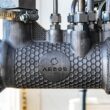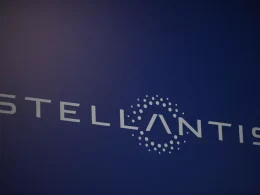AirAsia has announced a new phase in its long-standing partnership with European aircraft manufacturer Airbus, focusing on advancing research into aviation sustainability initiatives aimed at reducing carbon emissions in the ASEAN region.
Through a Memorandum of Understanding (MoU) between their sustainability divisions, AirAsia and Airbus have established a collaboration to investigate the decentralised production of Sustainable Aviation Fuel (SAF) using alternative feedstocks and technologies in Southeast Asia. This research-driven partnership seeks to identify opportunities to support the commercial development of promising projects that could expand the supply of SAF in the region.
The MoU also outlines a commitment to jointly explore advanced air traffic management (ATM) measures that could further reduce CO2 emissions. This effort will leverage AirAsia’s industry-leading fuel efficiency programmes alongside Airbus’ pioneering expertise in aeronautics, space, and related services. The organisations aim to identify applicable solutions developed through the Single European Sky ATM Research (SESAR) Project and evaluate their suitability for implementation in ASEAN airspace.
Air Asia’s Chief Sustainability Officer Yap Mun Ching said, “AirAsia will be a key partner of Airbus in ASEAN to test the feasibility of SAF output developed using alternative feedstock and technologies, as well as ground-breaking ATM initiatives supported by Airbus’ innovation teams. As a regional carrier based in five ASEAN countries, we bring unparalleled operational experience in the region to complement Airbus’ technological expertise. The partnership establishes a foundation upon which to build joint projects at multiple levels that address the broad needs of improving the environmental performance of the sector.”
Yap emphasised that the partnership addresses the urgent need for the aviation industry to invest in and scale up in-sector solutions essential for decarbonisation. In addition to improving operational efficiency and adopting SAF, she highlighted that a critical pathway for AirAsia to achieve net-zero emissions by 2050 involves upgrading the airline’s fleet to incorporate the most fuel-efficient models.
In June, AirAsia welcomed its first new A321neo aircraft since the Covid-19 pandemic, with five more aircraft scheduled for delivery in the fourth quarter for operations in Malaysia and Thailand. All Airbus aircraft deliveries to AirAsia starting in 2024 will incorporate a fuel blend that includes 5% SAF.
Airbus Chief Sustainability Officer, Julie Kitcher said, “Airbus is contributing to the decarbonisation of aviation around the world. That means working with our customers in every region, looking at all solutions available today and collaborating on research for future technologies. AirAsia is a key partner in the ASEAN region and we are excited to work with the airline to explore operational efficiency levers, including air traffic management and scaling up the production and distribution of SAF.”
AirAsia currently holds an order for 361 A321 units to fulfill the airline group’s fleet growth and replacement needs. By 2035, these aircraft upgrades are projected to contribute to a 10% reduction in AirAsia’s CO2 emissions compared to its 2019 baseline. Additionally, operational efficiencies and the adoption of SAF are expected to achieve a further 15% reduction as the airline works toward its goal of net-zero emissions by 2050.



















